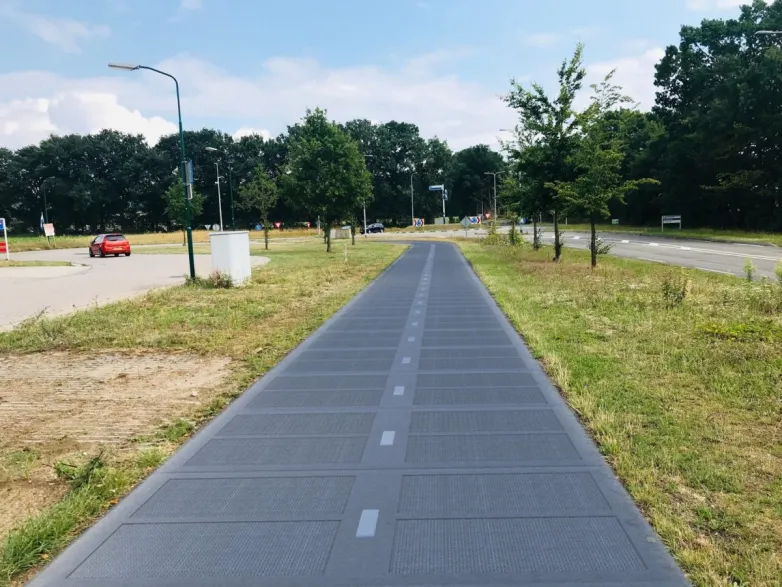Construction begins on pilot solar bike lane in the Netherlands
- The electricity generated by the PV panels will be used to power the surrounding lighting system, as well as to heat the lane in winter to prevent road slipperiness caused by snow, ice or water. The project is part of a plan by the Dutch government to test the viability of solar power production on road infrastructure.

The Dutch province of Utrecht has announced that the installation of solar panels on part of a bike lane located in the municipality of Rhenen will start on February 3.
The provincial government said the panels will be deployed over a 25 meter stretch of the bike lane. The electricity generated by the PV installation will be used to power the surrounding lighting system, as well as to heat the lane in winter to prevent road slipperiness caused by snow, ice or water. “The PV installation will improve road safety, while reducing the need of spreading salt on the road and on the roadsides,” the provincial administration stressed.
Another pilot solar bike lane, over a length of 350 meters, will be tested near the municipality of Maartednsdijk in the summer.
Solar roads in the Netherlands are not an unfamiliar concept. A bike path near Amsterdam was equipped with solar panels in 2016. The feasibility and economic viability of solar roads, however, still remains controversial.
The pilot project is part of a plan of the Dutch government to test the viability of solar power production on road infrastructure. “If the outcome is positive, solar panels on cycle paths can make an important contribution to reducing the use of fossil fuels and making the provincial infrastructure more sustainable,” the province of Utrecht said. “No agricultural or natural land needs to be used and the landscape is not affected.”
Rijkswaterstaat – the water management agency of the Netherlands, under the Ministry of Infrastructure and Water Management – started to seek alternative surfaces for solar deployment in March 2017, when it announced a plan to make water surfaces and other land under its control available for the installation of PV and other renewable energy power plants. Later in October, it unveiled a plan to install noise barriers featuring integrated bifacial solar modules.
In mid-January, the agency also announced plans to install solar panels along both sides of the A37 highway in Drenthe province, as well as on the median strip, to cover 300 hectares in total.
Also read

